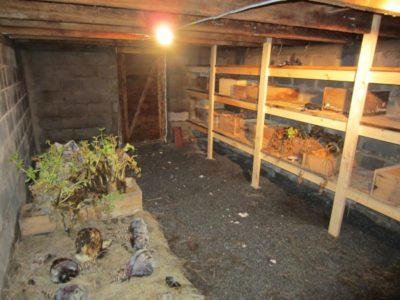Back in the old days, a root cellar was not a luxury, but instead was just as essential as our refrigerators are to us today.
A well-constructed root cellar can be a real life-saver — especially if you live off the grid, in remote areas or in places where power outages can be problematic. If you lose power and your refrigerator goes out, then your root cellar becomes an amazing backup.
You also can cut power consumption with a root cellar. Depending upon the size of your cellar, you can store as much as a restaurant-style walk-in refrigerator. However, you’re not using any electricity to do it.
As you may well know, root cellars are also a great place to take shelter in case of wind storms like tornadoes. Your house may be gone or damaged, but at least you weren’t in it when it was hit.
What Is a Root Cellar?
A root cellar is any storage space that uses the natural cooling, humidifying and insulating properties of the earth to preserve foods.
For your root cellar to work, it needs to maintain temperatures between 32 and 40 degrees Fahrenheit and a humidity of between 85 to 95 percent.
The Best Deals On Non-GMO Heirloom Seeds Are Right Here!
The reason you need both is that the temperature stops the growth of microorganisms and slows the release of ethylene gas, both of which work to decompose food faster.
The humidity stops your cold storage roots, tubers and vegetables from drying out and looking wilted.
What Type of Root Cellar Should I Build?
Many people will attempt to dig their root cellar right along the foundation of their home – the logic being they will have that nice cement wall for one side of the cellar if they have a basement. The problem with that is you’re undermining the foundation of your home. You’d be undermining a huge investment (your house) for something that you are likely going to build for free or at most a couple hundred dollars.
I’d recommend digging your cellar a
 Off The Grid News Better Ideas For Off The Grid Living
Off The Grid News Better Ideas For Off The Grid Living

